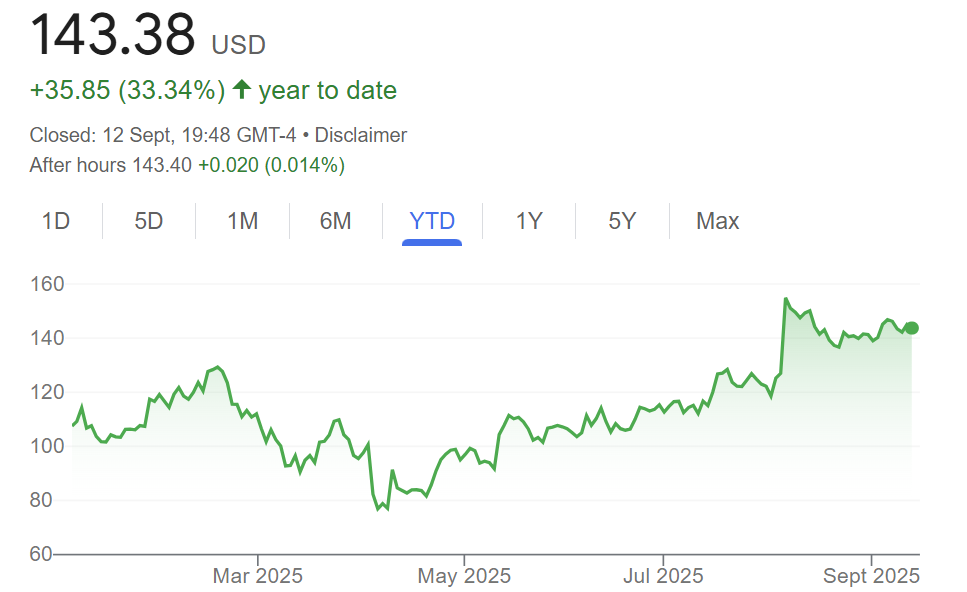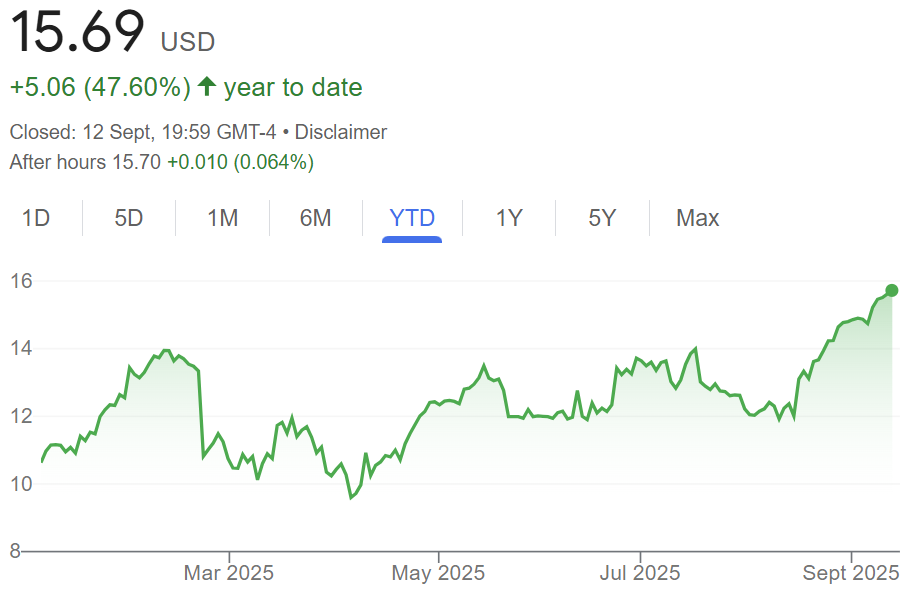A slowdown in artificial intelligence (AI) would be more detrimental to Scottish Mortgage than other major global events such as tariffs on trade, according to its co-manager Lawrence Burns.
Speaking with Trustnet last week, Burns said that, while AI represents the biggest single opportunity for many of the companies in the trust’s portfolio, it also carries one of the greatest risks.
“AI is a huge opportunity, but a slowdown would be less favourable,” he said. “If the development of AI turned out to be massively disappointing, that would impact the trust.”
By contrast, he argued that tariffs have only a limited effect on Scottish Mortgage holdings, even though they are disruptive to the broader global economy.
Recent results from Canadian e-commerce multinational Shopify and European luxury groups Ferrari and Hermès, all of which have exceeded expectations despite protectionist pressures, were highlighted as examples of tariff resilience.
Performance of stock over the year to date Source: Google Finance
Source: Google Finance
Burns described the worst-case scenario for AI as one where progress stalls because “new algorithms and models are needed to drive product improvements, causing a slowdown that reverberates down the supply chain”.
Some observers have pointed to last month’s underwhelming release of GPT-5 as evidence that such a slowdown may already be underway. Burns rejected that interpretation, insisting that one disappointing launch was not enough to prove a systemic issue.
On the other hand, the best-case outcome would see AI adoption scaling much faster than expected, reshaping both everyday life and how businesses operate. In this scenario, Burns said, the technology could “challenge the limits of profitability, allowing for the creation of global companies of incredible scale with just a few hundred people”.
The manager believes that this more optimistic trajectory is already emerging.
“Over the past 12 months, company after company has told us that AI is making a huge difference to what they are able to do from a revenue and/or cost perspective,” he explained.
“Founders are telling us we might be entering into the era of hyper profitability, as they, for example, need a far smaller number of engineers to develop the code base of their businesses and maintain it.”
One example is Brazilian digital bank Nubank. By integrating AI into its credit-underwriting process, the firm has been able to extend more credit while keeping risk at the same level, a development that Burns said had accelerated the company’s growth.
Performance of stock over the year to date
Source: Google Finance
Although Burns accepts that a stall in AI innovation would be a headwind, he argued the Scottish Mortgage portfolio would still be able to generate value.
“Most of our companies would still be able to monetise and make money off the developments we’ve seen in the past few years,” he said. In other words, even if progress slowed, the trust’s holdings could continue to benefit from AI applications already in place, while waiting for the next leap forward.
He added that the practical impact of AI adoption is likely to become clearer in the near term. “As people deploy more AI applications in the next year or two, more benefits, both in revenue and costs, will start to materialise,” he said.
The trust’s exposure to AI trends is spread across both hardware and software.
On the hardware side, its positions include Nvidia, the dominant producer of graphics processing units (GPUs). As at the end of July, Nvidia accounted for 3.3% of the portfolio, down from previous levels as the position was trimmed.
Taiwan Semiconductor Manufacturing Company (TSMC), which fabricates chips at scale, and Dutch firm ASML, whose lithography machines are essential for further miniaturisation, are also core holdings.
Not all of these have been positive contributors. ASML, for example, was the third-worst detractor in the year to 30 June 2025, costing the trust 2.7 percentage points of absolute contribution.
At the application layer, Scottish Mortgage backs data-driven businesses such as Snowflake and Databricks, as well as Amazon and its cloud division Amazon Web Services, which Burns described as “hugely important” in the commercialisation of AI.
The manager argued that Scottish Mortgage’s portfolio companies are particularly well placed to harness the technology. “AI overall is a massive positive,” he concluded.
“Many of our companies are digitally native and have huge amounts of data at their disposal. They are also run by founders who have digital software or technical expertise. The combination of those factors make them uniquely well placed to benefit from AI as a tool set.”





